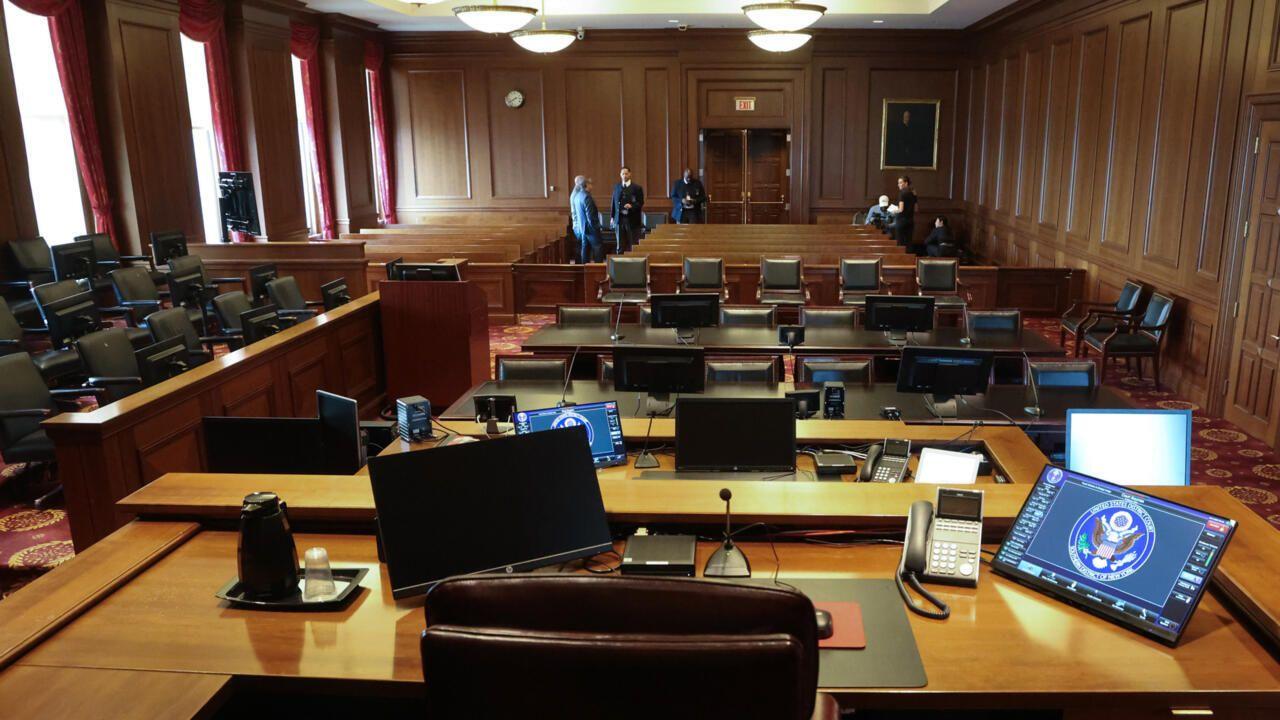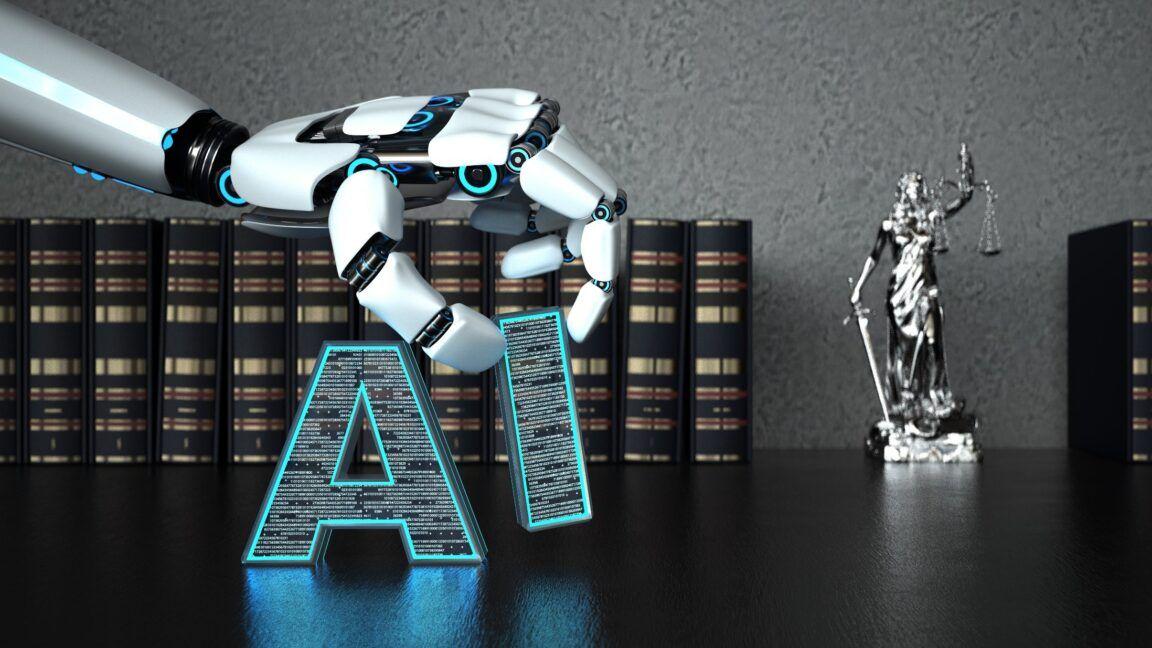Generative AI Enters the Courtroom: Transforming Justice or Jeopardizing Fairness?
2 Sources
2 Sources
[1]
Justice at stake as generative AI enters the courtroom
New York (AFP) - Generative artificial intelligence (GenAI) is making its way into courts despite early stumbles, raising questions about how it will influence the legal system and justice itself. Judges use the technology for research, lawyers utilize it for appeals and parties involved in cases have relied on GenAI to help express themselves in court. "It's probably used more than people expect," said Daniel Linna, a professor at the Northwestern Pritzker School of Law, about GenAI in the US legal system. "Judges don't necessarily raise their hand and talk about this to a whole room of judges, but I have people who come to me afterward and say they are experimenting with it." In one prominent instance, GenAI enabled murder victim Chris Pelkey to address an Arizona courtroom -- in the form of a video avatar -- at the sentencing of the man convicted of shooting him dead in 2021 during a clash between motorists. "I believe in forgiveness," said a digital proxy of Pelkey created by his sister, Stacey Wales. The judge voiced appreciation for the avatar, saying it seemed authentic. "I knew it would be powerful," Wales told AFP, "that that it would humanize Chris in the eyes of the judge." The AI testimony, a first of its kind, ended the sentencing hearing at which Wales and other members of the slain man's family spoke about the impact of the loss. Since the hearing, examples of GenAI being used in US legal cases have multiplied. "It is a helpful tool and it is time-saving, as long as the accuracy is confirmed," said attorney Stephen Schwartz, who practices in the northeastern state of Maine. "Overall, it's a positive development in jurisprudence." Schwartz described using ChatGPT as well as GenAI legal assistants, such as LexisNexis Protege and CoCounsel from Thomson Reuters, for researching case law and other tasks. "You can't completely rely on it," Schwartz cautioned, recommending that cases proffered by GenAI be read to ensure accuracy. "We are all aware of a horror story where AI comes up with mixed-up case things." The technology has been the culprit behind false legal citations, far-fetched case precedents, and flat-out fabrications. In early May, a federal judge in Los Angeles imposed $31,100 in fines and damages on two law firms for an error-riddled petition drafted with the help of GenAI, blasting it as a "collective debacle." The tech is also being relied on by some who skip lawyers and represent themselves in court, often causing legal errors. And as GenAI makes it easier and cheaper to draft legal complaints, courts already overburdened by caseloads could see them climb higher, said Shay Cleary of the National Center for State Courts. "Courts need to be prepared to handle that," Cleary said. Transformation Law professor Linna sees the potential for GenAI to be part of the solution though, giving more people the ability to seek justice in courts made more efficient. "We have a huge number of people who don't have access to legal services," Linna said. "These tools can be transformative; of course we need to be thoughtful about how we integrate them." Federal judges in the US capitol have written decisions noting their use of ChatGPT in laying out their opinions. "Judges need to be technologically up-to-date and trained in AI," Linna said. GenAI assistants already have the potential to influence the outcome of cases the same way a human law clerk might, reasoned the professor. Facts or case law pointed out by GenAI might sway a judge's decision, and could be different than what a legal clerk would have come up with. But if GenAI lives up to its potential and excels at finding the best information for judges to consider, that could make for well-grounded rulings less likely to be overturned on appeal, according to Linna.
[2]
Justice at stake as generative AI enters the courtroom
In one prominent instance, GenAI enabled murder victim Chris Pelkey to address an Arizona courtroom -- in the form of a video avatar -- at the sentencing of the man convicted of shooting him dead in 2021 during a clash between motorists. "I believe in forgiveness," said a digital proxy of Pelkey created by his sister, Stacey Wales. The judge voiced appreciation for the avatar, saying it seemed authentic.Generative artificial intelligence (GenAI) is making its way into courts despite early stumbles, raising questions about how it will influence the legal system and justice itself. Judges use the technology for research, lawyers utilize it for appeals and parties involved in cases have relied on GenAI to help express themselves in court. "It's probably used more than people expect," said Daniel Linna, a professor at the Northwestern Pritzker School of Law, about GenAI in the US legal system. "Judges don't necessarily raise their hand and talk about this to a whole room of judges, but I have people who come to me afterward and say they are experimenting with it." In one prominent instance, GenAI enabled murder victim Chris Pelkey to address an Arizona courtroom -- in the form of a video avatar -- at the sentencing of the man convicted of shooting him dead in 2021 during a clash between motorists. "I believe in forgiveness," said a digital proxy of Pelkey created by his sister, Stacey Wales. The judge voiced appreciation for the avatar, saying it seemed authentic. "I knew it would be powerful," Wales told AFP, "that that it would humanize Chris in the eyes of the judge." The AI testimony, a first of its kind, ended the sentencing hearing at which Wales and other members of the slain man's family spoke about the impact of the loss. Since the hearing, examples of GenAI being used in US legal cases have multiplied. "It is a helpful tool and it is time-saving, as long as the accuracy is confirmed," said attorney Stephen Schwartz, who practices in the northeastern state of Maine. "Overall, it's a positive development in jurisprudence." Schwartz described using ChatGPT as well as GenAI legal assistants, such as LexisNexis Protege and CoCounsel from Thomson Reuters, for researching case law and other tasks. "You can't completely rely on it," Schwartz cautioned, recommending that cases proffered by GenAI be read to ensure accuracy. "We are all aware of a horror story where AI comes up with mixed-up case things." The technology has been the culprit behind false legal citations, far-fetched case precedents, and flat-out fabrications. In early May, a federal judge in Los Angeles imposed $31,100 in fines and damages on two law firms for an error-riddled petition drafted with the help of GenAI, blasting it as a "collective debacle." The tech is also being relied on by some who skip lawyers and represent themselves in court, often causing legal errors. And as GenAI makes it easier and cheaper to draft legal complaints, courts already overburdened by caseloads could see them climb higher, said Shay Cleary of the National Center for State Courts. "Courts need to be prepared to handle that," Cleary said. Transformation Law professor Linna sees the potential for GenAI to be part of the solution though, giving more people the ability to seek justice in courts made more efficient. "We have a huge number of people who don't have access to legal services," Linna said. "These tools can be transformative; of course we need to be thoughtful about how we integrate them." Federal judges in the US capitol have written decisions noting their use of ChatGPT in laying out their opinions. "Judges need to be technologically up-to-date and trained in AI," Linna said. GenAI assistants already have the potential to influence the outcome of cases the same way a human law clerk might, reasoned the professor. Facts or case law pointed out by GenAI might sway a judge's decision, and could be different than what a legal clerk would have come up with. But if GenAI lives up to its potential and excels at finding the best information for judges to consider, that could make for well-grounded rulings less likely to be overturned on appeal, according to Linna.
Share
Share
Copy Link
Generative AI is making its way into courtrooms, raising questions about its impact on the legal system. While it offers potential benefits, concerns about accuracy and fairness persist.
The Rise of Generative AI in Courtrooms
Generative artificial intelligence (GenAI) is making significant inroads into the legal system, transforming how justice is administered and raising important questions about its influence on courtroom proceedings. Despite early challenges, the technology is being adopted by judges for research, lawyers for appeals, and even by parties involved in cases to express themselves in court
1
2
.Daniel Linna, a professor at the Northwestern Pritzker School of Law, suggests that GenAI's use in the US legal system is more widespread than commonly believed. He notes, "Judges don't necessarily raise their hand and talk about this to a whole room of judges, but I have people who come to me afterward and say they are experimenting with it"
1
2
.Groundbreaking AI Applications in Legal Proceedings
One of the most striking examples of GenAI's courtroom presence occurred in Arizona, where a murder victim, Chris Pelkey, was able to "address" the court through a video avatar during the sentencing of his convicted killer. This AI-generated proxy, created by Pelkey's sister Stacey Wales, delivered a message of forgiveness that the judge found authentic and impactful
1
2
.
Source: France 24
Benefits and Risks of AI in Legal Practice
Attorney Stephen Schwartz from Maine views GenAI as a helpful tool that can save time in legal practice. He uses AI assistants like ChatGPT, LexisNexis Protege, and CoCounsel for tasks such as researching case law. However, Schwartz emphasizes the importance of verifying AI-generated information, stating, "You can't completely rely on it"
1
2
.The technology has indeed been responsible for some significant errors, including false legal citations and fabricated case precedents. In a notable incident, a federal judge in Los Angeles imposed $31,100 in fines on two law firms for submitting an error-filled petition drafted with AI assistance
1
2
.Potential for Transformation and Increased Access to Justice
Despite these challenges, some legal experts see potential for GenAI to revolutionize the justice system. Professor Linna believes these tools could be transformative in providing access to legal services for those who currently lack it. He states, "We have a huge number of people who don't have access to legal services. These tools can be transformative; of course we need to be thoughtful about how we integrate them"
1
2
.
Source: ET
Implications for Judicial Decision-Making
The integration of GenAI into the legal system extends to judicial decision-making as well. Some federal judges in the US capital have acknowledged using ChatGPT in formulating their opinions. This raises questions about how AI might influence case outcomes, similar to the way human law clerks do
1
2
.Related Stories
Challenges and Concerns
As GenAI makes it easier and cheaper to draft legal complaints, there are concerns about potential increases in court caseloads. Shay Cleary of the National Center for State Courts warns, "Courts need to be prepared to handle that"
1
2
.Moreover, the use of AI by individuals representing themselves in court often leads to legal errors, highlighting the need for careful integration of this technology into the legal system
1
2
.The Future of AI in the Legal System
As the legal community grapples with these developments, there's a growing consensus on the need for technological literacy among legal professionals. Professor Linna emphasizes, "Judges need to be technologically up-to-date and trained in AI"
1
2
.While the potential benefits of GenAI in the legal system are significant, including more efficient research and potentially more well-grounded rulings, the challenges it presents are equally substantial. As this technology continues to evolve, the legal community must strike a delicate balance between leveraging its benefits and safeguarding the integrity and fairness of the justice system.
References
Summarized by
Navi
Related Stories
AI Hallucinations in Legal Filings: A Growing Concern for US Courts
22 Jul 2025•Policy and Regulation

AI-Generated Errors in Australian Murder Case Highlight Risks of Unverified AI Use in Legal Proceedings
15 Aug 2025•Technology

AI-Generated Legal Citations Lead to Sanctions and Raise Concerns in Courts
15 May 2025•Policy and Regulation

Recent Highlights
1
Google Gemini 3.1 Pro doubles reasoning score, beats rivals in key AI benchmarks
Technology

2
Nvidia and Meta forge massive chip deal as computing power demands reshape AI infrastructure
Technology

3
ChatGPT cracks decades-old gluon amplitude puzzle, marking AI's first major theoretical physics win
Science and Research





